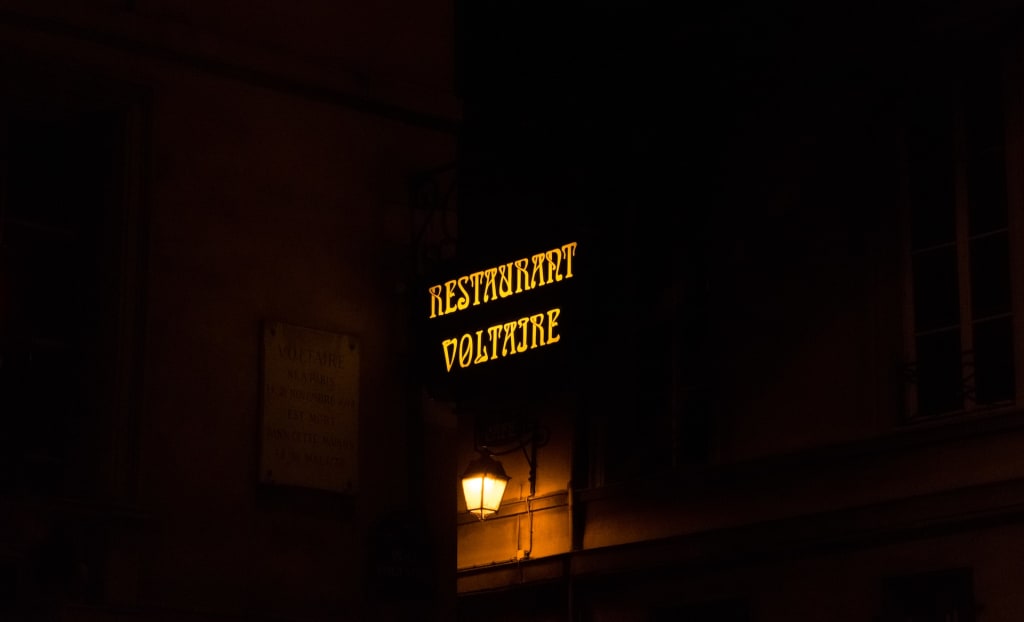Candide
A Review of Its Impact

In my high school Literature class, Voltaire's "Candide" was a required reading assignment and soon emerged as an unexpected beacon of enlightenment.
Amidst the swirling storm of adolescence, I clutched a book that would change my perspective on life forever. As I ventured through its pages, I unearthed a treasure trove of wisdom that resonated profoundly and reshaped the tumultuous journey of growing up.
Most teenagers would attest, high school is a maze of emotions and experiences. Each day presents a new set of challenges and uncertainties. We wake up with hope, only to be disappointed as the day progresses, much like a fleeting ray of sunlight overshadowed by the downpour of reality. Our social standing seems as unstable as the stock market, where we're riding high one day only to find ourselves plummeting the next. The teenage years are a roller coaster ride of emotions, and often, the lows stand out the most, casting a shadow over the brighter moments.
Let me be clear the "volatility of life" is often unkind to most adolescents!
Candide was an unassuming novel that held within its pages a profound truth – the acceptance of imperfection. Voltaire's narrative took me on a journey alongside its eponymous protagonist, Candide, as he navigated a world rife with absurdity, injustice, and misfortune. But woven into the story's fabric was a resounding message: that we inhabit the best of all possible worlds. This seemingly paradoxical notion opened my eyes to a new way of perceiving disappointment and failure.
Through the eyes of "Candide," life was not an uninterrupted parade of victories but a complex tapestry where both triumph and defeat are intricately interwoven. Like a pendulum that swings from one extreme to another, we experience the pendulum of life – one moment rejoicing in success, the next grappling with defeat. Rather than bemoaning the cruel whims of fate, "Candide" implores us to embrace this ebb and flow, for it is the essence of existence itself.
As I delved deeper into the book, I realized that accepting disappointment resonated profoundly with my experiences. I began to accept failure as a necessary part of the journey. Just as success is a testament to our efforts, failure often leads to eventual triumph. The book's wisdom echoed as I faced challenging classes, social setbacks, and unfulfilled expectations. Instead of wallowing in self-pity, I reminded myself that I lived in the best possible worlds, where disappointments were mere stepping stones toward a brighter outcome.
I soon learned that the rain that soaked my dreams with disappointment was also the rain that nurtured the soil of resilience. The winds of change rattling my comfort zone were the same winds that opened my mind to new perspectives. And just as Candide found solace in cultivating his garden after his trials, I began to find comfort in accepting life's imperfections and embracing the lessons they engendered.
One crucial lesson "Candide" taught me was "the lesson of resilience.” The book became a guiding light as I navigated the uncertain waters of adolescence, a reminder that every setback was a chance to learn, and every triumph was a testament to my perseverance.
In the grand tapestry of life, the lows and highs are but threads intricately woven together to create a unique masterpiece. As I read and reread the book, I realized that the roller coaster of adolescence was not something to be dreaded but to be embraced. In accepting life's imperfections, I could now better accept success and failure.
Armed with the wisdom of "Candide," I convinced myself to start each day with newfound courage. The rains of disappointment no longer drenched my spirit; they merely refreshed my resilience. The fluctuations of thoughts no longer held the power to sway my emotions; they were ripples in the grand ocean of life. I learned to cultivate my garden, tending to my dreams and aspirations amidst the chaos.
Life's Lesson
Ultimately, "Candide" was more than just a book for me. It was a guiding philosophy, a beacon of wisdom that illuminated my path through the labyrinth of adolescence. It taught me to see the world through a lens of acceptance, to embrace both the light and the shadow. And as I closed the book, my life was filled with the timeless truth that in the best of all possible worlds, every disappointment was a chance for growth, and every setback was an opportunity for a future successful outcome!
About the Creator
Anthony Chan
Chan Economics LLC, Public Speaker
Chief Global Economist & Public Speaker JPM Chase ('94-'19).
Senior Economist Barclays ('91-'94)
Economist, NY Federal Reserve ('89-'91)
Econ. Prof. (Univ. of Dayton, '86-'89)
Ph.D. Economics






Comments (1)
I love your review! Voltaire, like the great authors, was able to understand the universal values of life. Too often lately we talk about success, and failure as a road to success. But it's not easy to accept failure or hard times as a necessary part of life. Not many people can figure this out as teenagers, I didn't understand it! I figured this out much later in the years! You were lucky and at the same time very intelligent to understand that book in depth and draw a life lesson from it already at a young age.